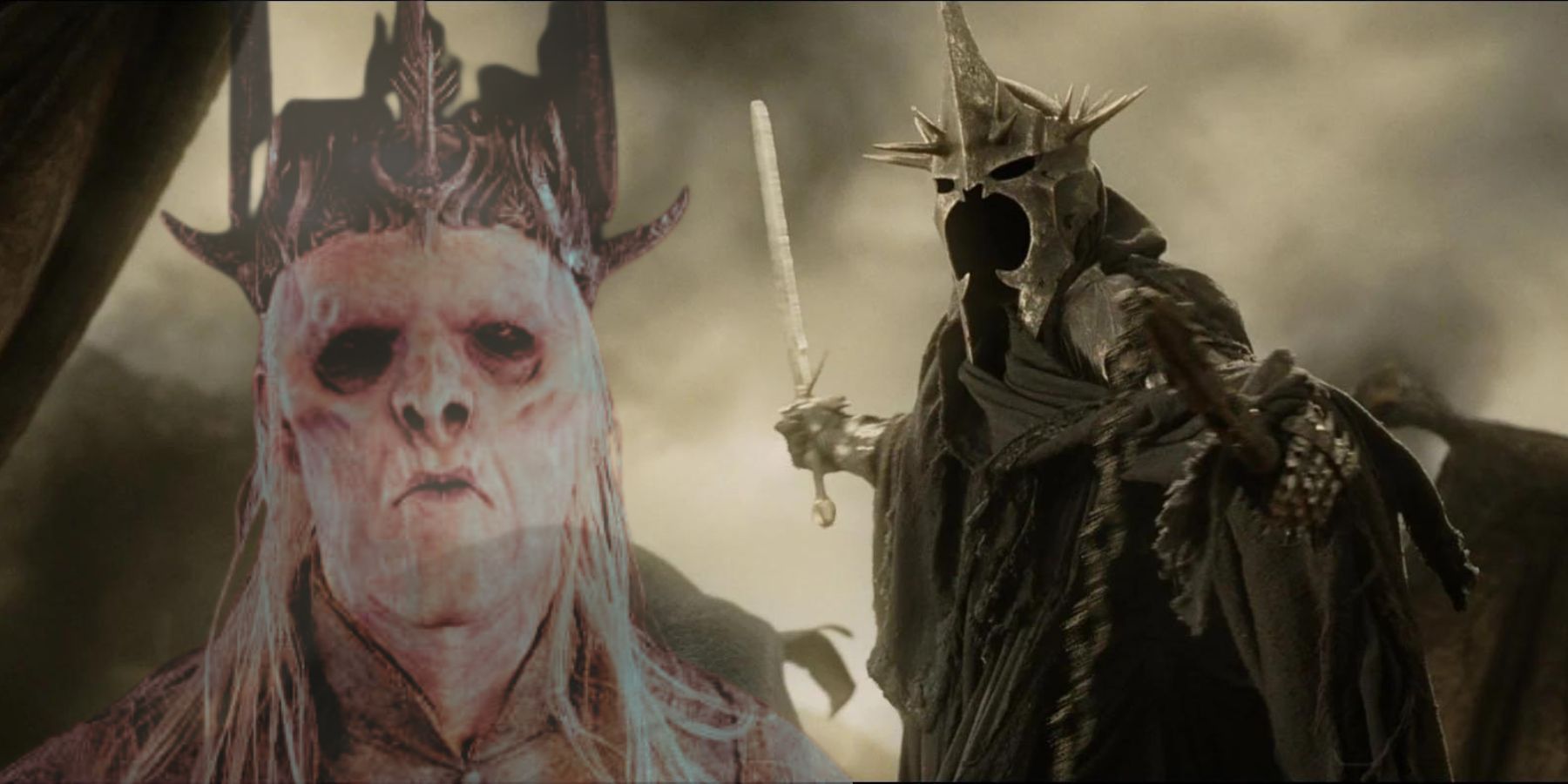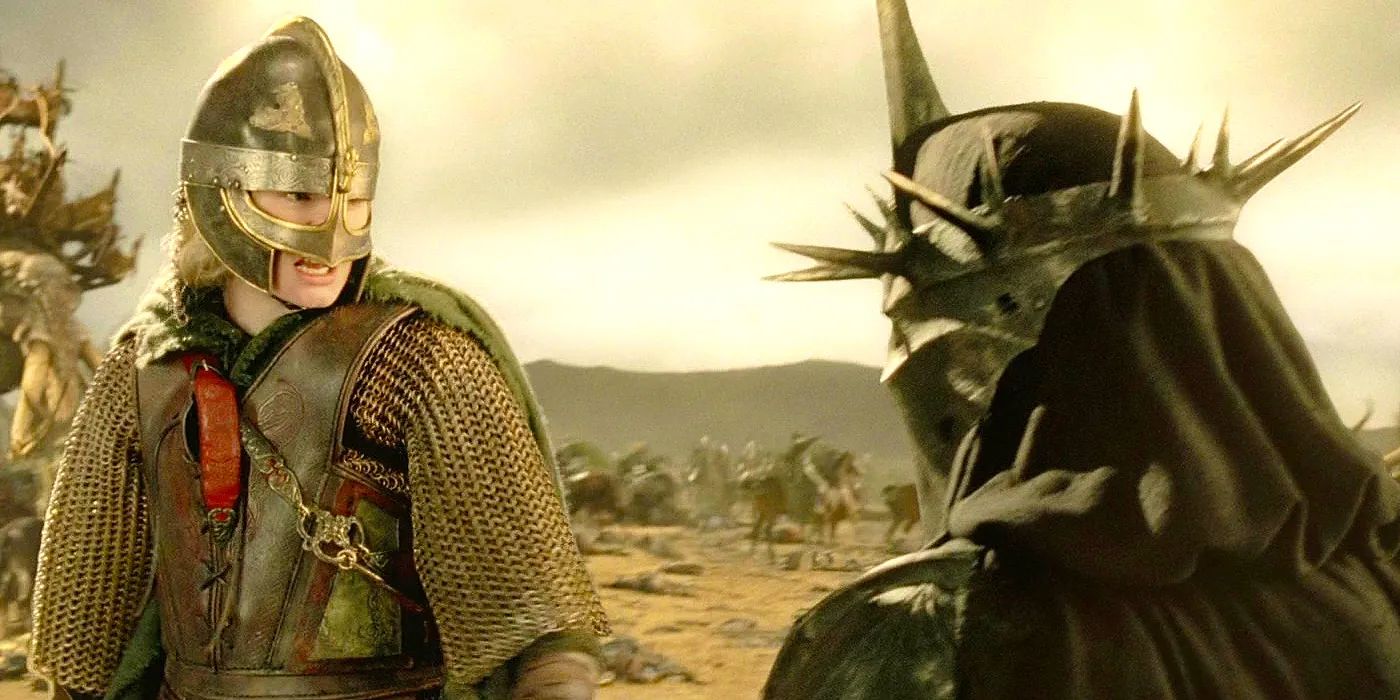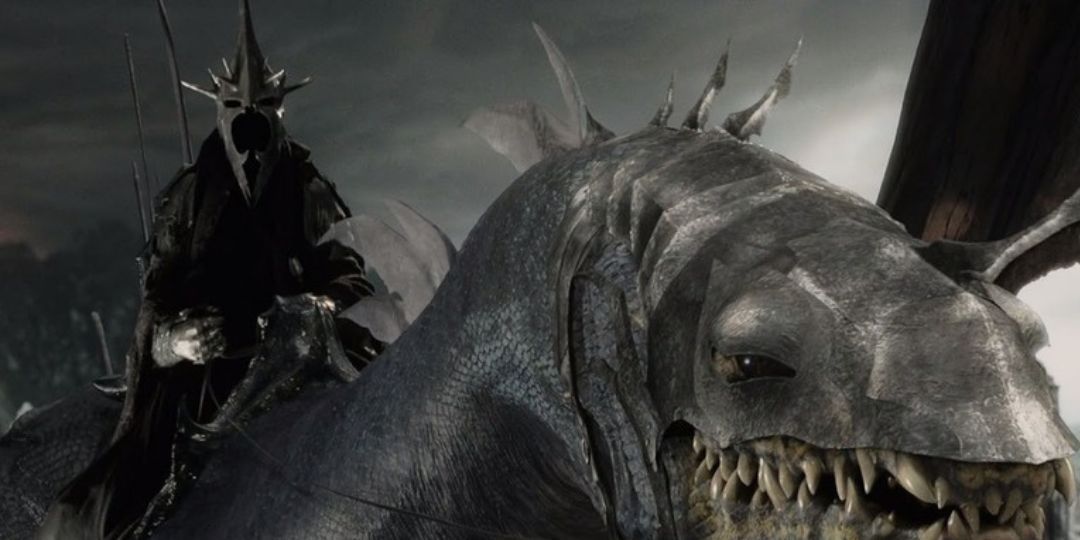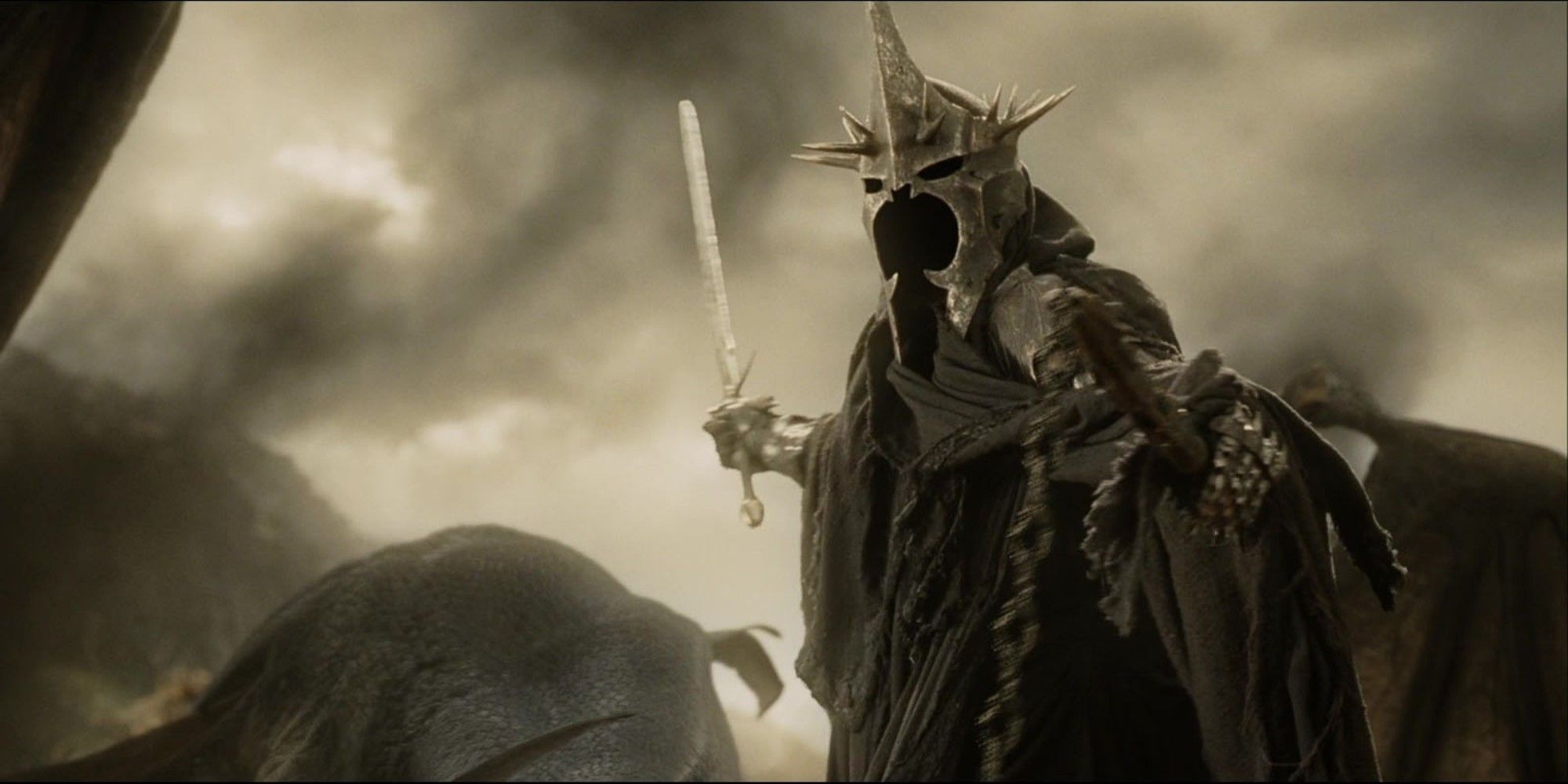While there are many fearsome foes in The Lord Of The Rings trilogy, there aren’t many that managed to strike fear into the hearts of men the way the Witch-King of Angmar does. Acting as the leader of the horrifying Nazgul, the Witch-King was capable of some of the greatest evil in The Lord Of The Rings, even if it was glossed over in the films. One of the biggest points of contention about this foe is a prophecy or declaration of sorts that essentially states that no man was capable of killing the Witch-King.
As every The Lord Of The Rings fan will know, the Witch-King is eventually slain by Eowyn during the Battle of the Pelennor Fields. This moment has led most people to believe that the Witch-King’s statements about not being slain by men are actually true, but that may not be the case. While powerful, it is hard to believe that the Witch-King had some kind of magical protection that meant no man could kill him.
How Did The Witch-King Die?
The Witch-King of Angmar may have been one of the most vicious foes on any battlefield that he entered, but when he arrived for the Battle of the Pelennor Fields, he was doomed to meet his end. Before he was eventually killed, the Witch-King was wreaking all kinds of havoc and even managed to wound King Theoden, a wound that Theoden would not be able to recover from. Luckily, the niece of the king was nearby and she was ready to take on a battle that few men would have been brave enough to take on.
Eowyn stood alone against the Witch-King and his hideous beast, though she would quickly lop the beast's head clean off. While an agile fighter, Eowyn stood no match against the Witch-King’s might, and he soon had her in his clutches. It was the Witch-King’s arrogance that led to his defeat as the Hobbit Merry was able to sneak up on him and stab him from behind, creating an opening for Eowyn. With one quick stab to the face of the Witch-King, Eowyn had managed to defeat a foe that no man was capable of killing. Without the aid and direction of the Witch-King, the forces of evil were unable to contend with the overwhelming force that Aragorn, Legolas, and Gimli would soon arrive with.
Why Was It Said That A Man Couldn’t Kill The Witch-King?
Long before Eowyn would slay the Witch-King, the dreaded foe had already become a legendary foe on the battlefield. The Battle of Fornost would occur in the year TA 1975 and would serve as a major turning point in the history of the Witch-King. The battle itself would go horribly for the Witch-King as his forces would be utterly crushed, but even in defeat, the Witch-King remained feared. His retreat would be cut off initially by the prince of Gondor, Earnur, but the Witch-King would be able to humiliate him before ultimately escaping.
Due to Earnur’s humiliation, he was set on giving chase to the Witch-King, but the Elf Glorfindel would stop him and make the unforgettable prophecy that no man would ever be able to slay the Witch-King. Unfortunately, Earnur would later be goaded into battling the Witch-King in Minas Morgul. While the details of that battle were not known, Earnur was never heard from again, meaning he likely died a quick and brutal death at the hands of his terrifying enemy.
Could A Man Have Killed The Witch-King?
The issue with Glorfindel’s prophecy is that it was really just something a wise Elf stated rather than any kind of confirmed fact. If you take the use of the word man to mean any male in Middle Earth, that aspect would be slightly untrue because Merry, a male Hobbit, could be said to have been a part of the killing of The Witch-King. If you flip the meaning to apply to the race of Men of Middle Earth, this also cannot be true because Eowyn was of that race. It’s likely that Glorfindel simply believed that none of the Men of Middle Earth would be capable of defeating a being as fearsome and magically imbued as the Witch-King, still leaving an opening for a powerful Elf or Dwarf to take the opponent down with the right equipment.
If you were to swap Eowyn out for any random male character in The Lord Of The Rings, it’s hard to believe that anything would have gone differently. The Witch-King still would have taunted his dead-to-rights opponent, Merry still would have stabbed him, and there would have been a major opening for anyone to take down the Witch-King. The major factor in this entire equation was actually Merry more so than it was Eowyn, as it was Merry’s blade that allowed for the Witch King to be finished off.
What most people may not realize unless they read the books or made some serious inferences is that Merry’s blade was actually incredibly special. Rather than an average sword of Men, Merry’s sword carried with it an enchantment that would ultimately allow it to severe Sauron’s spell placed on the Witch-King that was binding him to the mortal realm. After Merry’s stab to the back of the leg, the Witch-King was at the most vulnerable he’d ever be to just about any attack, creating the opening Eowyn needed to finally defeat him.
None of this should be viewed as a way to belittle Eowyn’s character as it’s obvious that she held a kind of courage that few people around her actually held. No one was exactly rushing to battle the Witch-King, but she and Merry were willing and able to bring down the legendary enemy, whether they know why they won the day or not.
The Lord Of The Rings is available to stream on Amazon Prime Video







